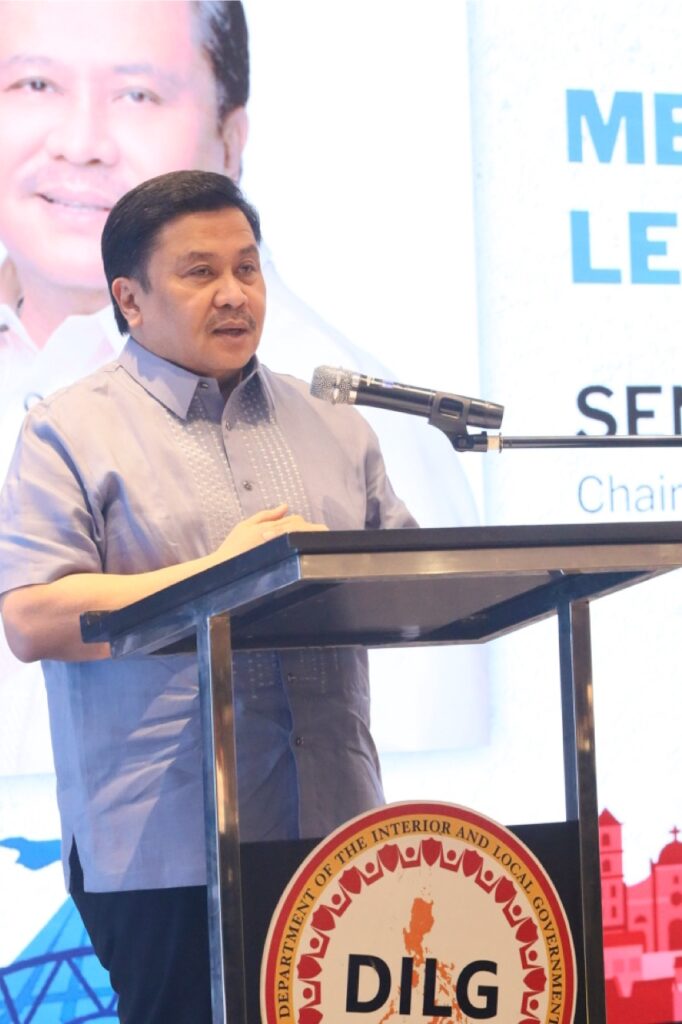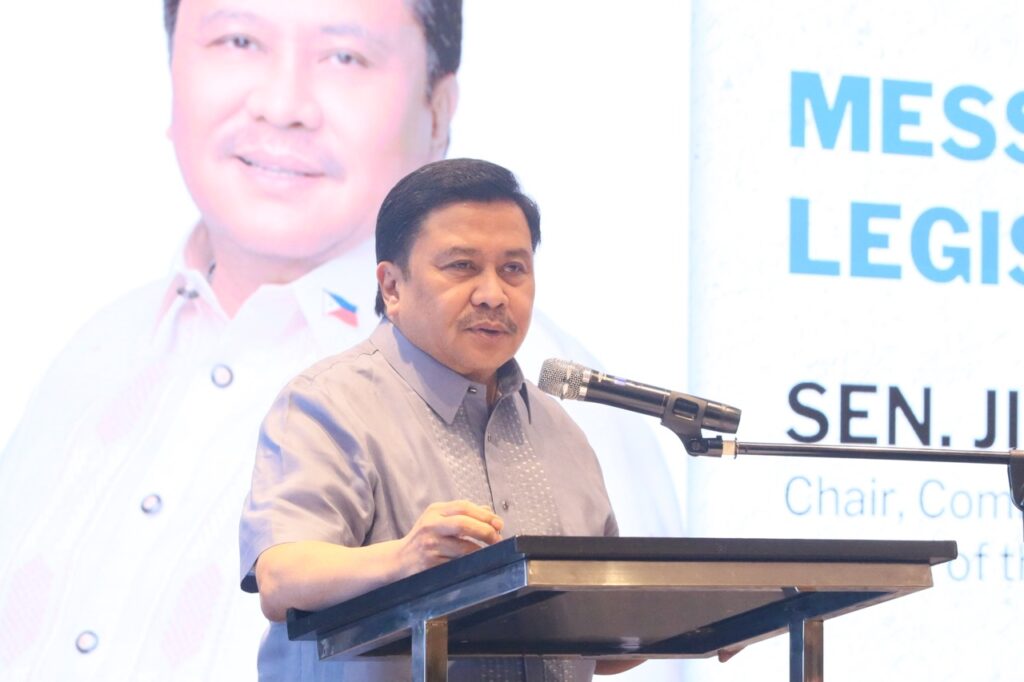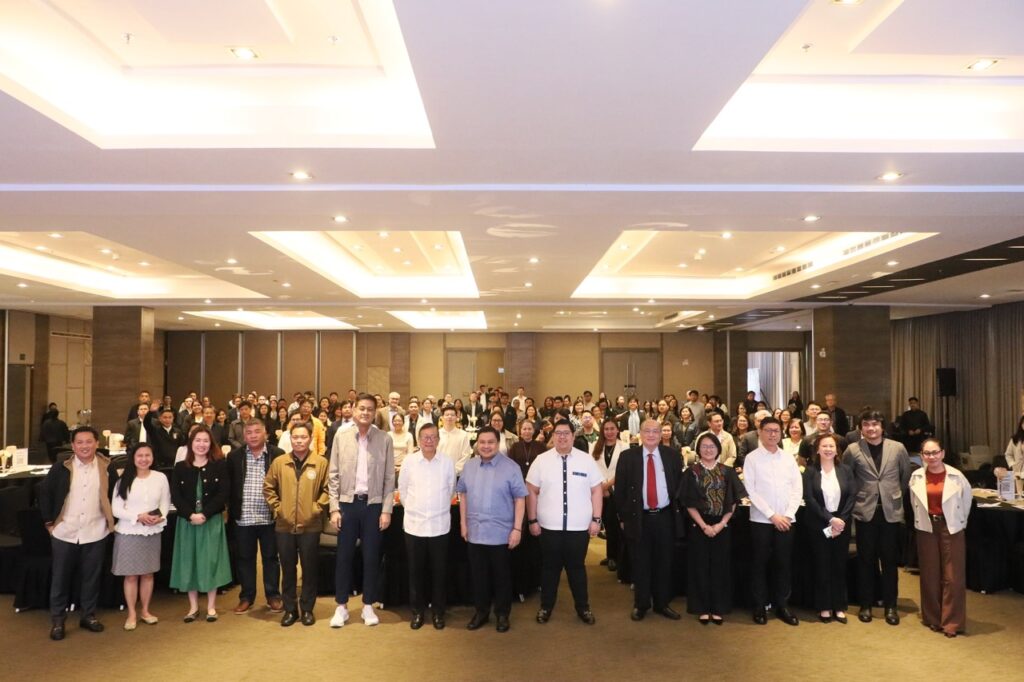SPEECH OF SENATOR JINGGOY EJERCITO ESTRADA
AT THE 1st NATIONAL CONVENTION: REVIEW AND AMENDMENT PROGRAM FOR THE LOCAL GOVERNMENT CODE OF 1991
November 24, 2025
Sequoia Hotel Manila Bay

Honorable governors, mayors, board members, councilors, and distinguished leaders of the Union of Local Authorities of the Philippines — magandang araw po sa inyong lahat.
It is an honor to stand before you today as we confront one of the most urgent challenges in our governance landscape: the need to revisit and revitalize the Local Government Code of 1991.
Recent developments surrounding flood control projects have exposed deep cracks in our system — cracks not only in infrastructure, but in accountability, coordination, and trust. Claims of ghost projects, contractor monopolies, and the misuse of funds are not merely administrative failures; they are symptoms of a broader structural weakness that demands bold and urgent reform.
I consider it fortunate to be given this opportunity to speak before you today — not to defend myself, but to rally all of us around a principle I know we share: that local governments must be at the center of national development.

If there is one thing that this controversy has laid bare, it is not just the need for accountability, but the need to fix a system that sidelines the very people who know their communities best — you, our local leaders.
In the going budget debates, I raised a point that has been ignored for far too long: these so-called ghost flood control projects thrived because there was little to no consultation with local governments. Your participation from the very beginning could have prevented mismanaged, unnecessary, and uncoordinated projects.
Sa imbestigasyon ng Senado, lumalabas na ang mga district engineers ng DPWH ang mismong nagtitimon ng mga ghost projects. Ni hindi man lang ito dumadaan sa mga Regional Development Councils. Batid ninyo ang naging pagdinig ng Senado kung saan mismong ilang mayors ang nagsabing hindi nila alam na may inilaan palang infrastructure projects sa kanilang bayan — hindi nila alam na may flood control projects sa mismong lugar nila.
Hindi mga senador o congressman ang nakakaalam kung may pangangailangan sa flood control o iba pang infrastructure projects sa isang bayan — kayo ang tunay na nakakaalam, bilang mga lider ng pamahalaang lokal.
Lest I be accused of washing my hands of the issues hurled at me, let me be clear: I am simply underscoring the point that the flood control controversy is a wake-up call — a call to draw clearer lines between national and local responsibilities, particularly in disaster mitigation and public works.
Joint planning mechanisms must be institutionalized so that you — the vanguard of local governance — are not merely informed, but truly heard and involved in national projects.
Kapag pumalpak ang proyekto, kayo ang unang sinisisi ng taumbayan. And that is profoundly unfair — and we all know it.
As we revisit the Local Government Code, we must confront the fundamental question: Are our local governments truly empowered to serve their people? Or are they trapped in a system that burdens them with responsibility without resources, and authority without genuine accountability?
The Local Government Code of 1991 was a landmark of decentralization. But today, it is showing its age. We are confronting 21st-century problems using a 20th-century framework.
We need to revisit the Code because we now face new and complex challenges — climate change, rapid urbanization, digital transformation, and a public that rightly demands transparency and responsiveness. Reforming the Local Government Code is not about weakening national-local ties, but recalibrating them for sustainability, efficiency, and real results.
I challenge you to be at the forefront — not just as implementers, but as co-authors of our nation’s future. You can rest assured that I will stand with you in pushing for a Local Government Code that truly reflects the needs and aspirations of our people.
Let us turn this moment into a movement — for stronger, smarter, and more accountable local governance.
Maraming salamat sa inyong patuloy na pagtitiwala at suporta. Mabuhay ang ULAP. Mabuhay ang DILG. Mabuhay ang pamahalaang lokal.


